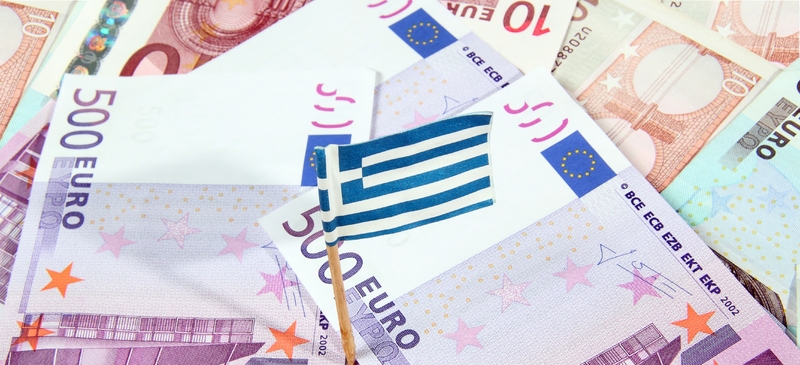
It’s the economics, stupid
by Simon Tilford
There was always a risk that a one-size-fits-all monetary policy would lead to big divergences in inflation and competitiveness across the eurozone. This, in turn, would result in trade imbalances which would be difficult to reverse. Proponents of the single currency dismissed such concerns, arguing that the single currency was a political project, and that the economics would fall into place once the currency became a reality. The consequences of this line of reasoning are now clear. The eurozone faces a severe test. Greece – the member-state in the tightest spot – is far from unique. A number of other member-states could easily find themselves fighting to retain the confidence of the financial markets.
The crisis that has erupted within the eurozone has been brewing for a long time. The problems of the southern member-states – Greece, Spain and Portugal – were disguised by the credit boom, which underpinned economic growth (and tax revenues), while investors were happy to lend them money to cover their current account deficits. But when the financial crisis hit and economic growth collapsed, the underlying weakness of their public finances and trade positions were exposed.
The external deficits these countries are running with the eurozone’s surplus members – principally Germany and the Netherlands – are a huge drain on their economies, and will make it all but impossible for them to put their public finances on a sustainable footing. They need to devalue and rebalance their economies away from domestic consumption to exports. However, unlike in the case of Britain, which shares quite a few of their characteristics, they no longer have that option.
Many eurozone governments do not seem to have understood the implications of membership. When they signed up to the euro they effectively committed themselves to liberal economic policies. There is no eurozone government to transfer funds from stronger to weaker member-states. So if a country loses competitiveness it has no option but to cut its costs relative to the rest of the currency bloc. The best way of doing this is through higher productivity. The governments of the southern member-states have shown no urgency to improve their dire productivity performance. That leaves cuts in wages. To do this, countries need flexible labour markets, so real wages can fall as fell as rise. Unfortunately, they have shown similarly little enthusiasm for reforming their highly regulated labour markets.
However, the southern member-states should not shoulder all the blame for the fault lines within the eurozone. Germany is often cited as the country which understands how to flourish within a currency union. Germany has certainly shown discipline. Wage restraint has been relentless, boosting the country’s export competitiveness and producing a yawning current account surplus. Even after the crisis – which caused its exports to contract by nearly 20 per cent – Germany still has an external surplus of around 6 per cent of GDP and rising, over half of which is with the rest of the eurozone. But Germany’s strategy is hardly one that other countries can follow, because one country’s surplus is another’s deficit.
Despite the much-vaunted strengths of Germany’s exporters, the country’s economic growth performance has been poor since the introduction of the euro. And there is no sign of change. The only real impetus in the German economy comes from exports; private consumption remains chronically weak. After escaping recession earlier than most eurozone countries in 2009, Germany’s economy ground to a halt in the final quarter of 2009 and is likely to contract in the first three months of this year. Private consumption is all but certain to fall this year.
The weakness of Germany’s domestic demand will no doubt lead to renewed falls in real wages and to a further decline in Germany's trade-weighted exchange rate within the eurozone. Exports will again keep an otherwise stagnant economy afloat. But it will be all but impossible for the likes of Spain and Greece to put their public finances in order unless they can get their economies growing. For this, they must rebalance their trade with the rest of the eurozone. They need Germany to grow under its own steam.
Germany’s structural mercantilism may be little short of a beggar-thy-neighbour strategy, but the struggling member-states of the eurozone can hardly claim they were not warned, not least by Germany itself. The Germans were hardly cheerleaders for the euro, and were decidedly lukewarm about the southern Europeans joining. They were certainly not the ones holding the shot-gun at the wedding. They reluctantly accepted a broad membership, but on the condition that countries understood what they were getting themselves into.
Neither the Germans nor the other countries running big surpluses are taking steps to rebalance their economies. In order to retain the confidence of lenders the eurozone’s hard-hit governments will make big cuts in public spending. In the absence of strong exports, this will depress demand and with it economic growth, in turn undermining the attempt to strengthen public finances. Germany will agree to support a member-state which finds itself unable to tap the bond markets, in order to prevent contagion to other struggling member-states. But it will resist pressure for economic union, as this would involve the "stronger" economies transferring money to the "weaker" ones on an ongoing basis. Does this mean the eurozone is destined to unravel? No, but the future certainly looks decidedly troubled.
Simon Tilford is the chief economist at the Centre for European Reform.
